World Cup 2015: The Englishman out to break English hearts
- Published
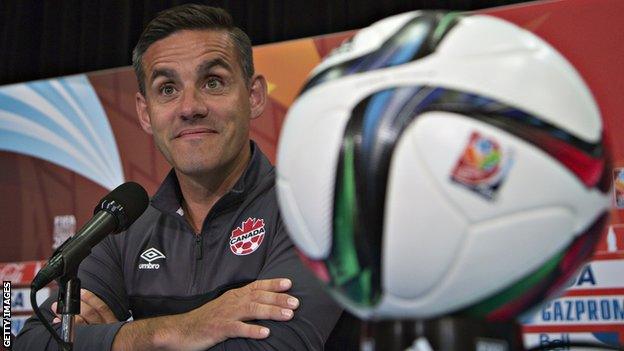
In 2013, Canada boss John Herdman said he would consider taking the England job if it was offered to him
World Cup quarter-final: England v Canada |
|---|
Date: 28 June Kick-off: 00:30 BST Coverage: Live on BBC One, BBC Radio 5 live, BBC Sport website, mobiles and sport app |
When Canada coach John Herdman was in charge of New Zealand at the 2011 World Cup his attempts to ramp up the pressure on England before a group game between the sides backfired.
Herdman, who hails from Consett in the north-east of England, said that England under then boss Hope Powell were "rigid and predictable". Powell printed the outspoken Geordie's comments, stuck them up in the dining hall and England came back to win the game 2-1.
"He loves his mind games," says England forward Karen Carney, who was involved that day in Germany and could also start in Saturday's World Cup quarter-final against the hosts.
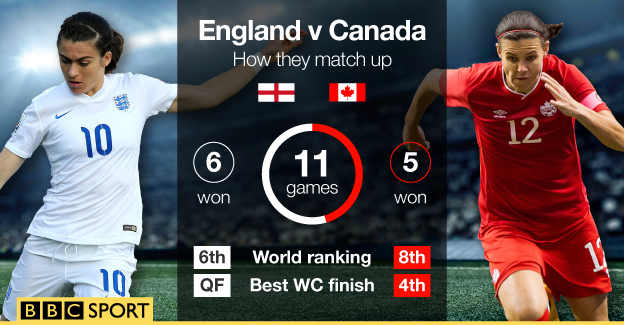
Herdman, who believes the brain is the most important part of footballer, has ensured he doesn't fuel the fire this time, yet the intriguing rivalry remains.
The Newcastle United supporter plotting England's downfall has history with his native land - and not just from his upbringing.
In addition to knocking out Great Britain at the same stage of the 2012 London Olympics, he was also tipped to take the England job before Mark Sampson was awarded the post 18 months ago.
In the end Herdman, 39, decided that leading the host nation at a World Cup was too good a job to leave.
For a man who seems to relish the spotlight, Saturday's match in front of 54,000 fans at BC Place could be the kind of showpiece he had in mind.
Formative years
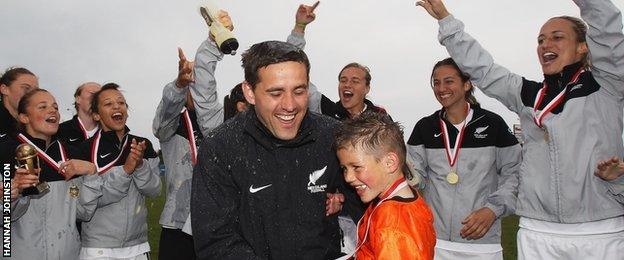
John Herdman enjoyed success with New Zealand after moving to the country in 2003
Herdman's path to the top job in Canadian women's football has been a roundabout one. Brought up in the rough and tumble of Consett, County Durham, he found himself caring for his father, who suffered from a mental illness. His parents later divorced and his mother turned to alcohol.
A young Herdman felt like he had no place in a town renowned for its steel-making and he describes it now as a period which left him with "demons" he has worked hard to overcome.
Eventually he found his way into teaching and, by combining it with coaching, he found his niche. A sports science degree followed and then a job at Sunderland's academy.
But without a playing background behind him - the Northern League was as far as he got - he felt like progress at a Premier League club would be hindered. So in 2001, he and his wife decided to hot-foot it to New Zealand after he was offered a coaching position. His relentless work ethic meant that three years later he was picked up by the national federation and in 2005 he was coaching the national team.
"Your past does shape you and it certainly gives me a fighting spirit," Herdman told BBC Sport. "It's made me want to prove people wrong and work that little bit harder than others."
After a World Cup absence stemming back to 1991, Herdman led the Football Ferns to consecutive World Cups in 2007 and 2011, as well as their first Olympics in 2008. On all three occasions, New Zealand failed to make it past the group stages but his reputation as an innovator and work behind the scenes impressed. Late in 2011, Canada came along with an offer.
Canada calling
Women's World Cup 2015 set for quarter-finals
With host status at the Women's World Cup looming, Herdman's success in North America was instant. Leading them to first place in the 2011 Pan-American Games, he also successfully guided them to the London 2012 Olympics where he would enjoy his greatest and perhaps most heart-breaking moment as a coach.
Having earned a route through to the quarter-finals with a draw against Sweden at Newcastle's St James' Park, Herdman's team then punctured the GB balloon by beating them 2-0 in the quarter-finals. "In Olympic terms there were a few personal bests out there," Herdman said.
The United States awaited in the last four but Canada were beaten in extra time following a dubious goal which earned their arch-rivals a place in the final and an eventual gold medal.
By earning Canada's first bronze medal in football since 1936, though, Herdman's status as a world-class coach was sealed and he formed an unbreakable bond with his team. Christine Sinclair, the country's record goalscorer, said: "He's the best coach I've ever had."
Pressure of a host nation
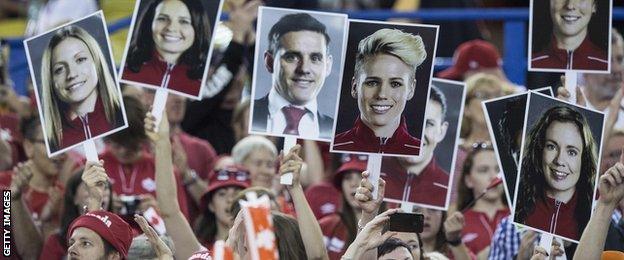
John Herdman must cope with the expectation of a nation as manager of the World Cup hosts
Which is why reports of a player fall-out ahead of the England quarter-final have been a surprise.
Canada have failed to fire at the World Cup so far, but have ground their way to a series of 1-0 wins. But when Sinclair scored an injury-time penalty to earn Canada an opening game victory over China, she ran straight to Herdman to celebrate.
This week's controversy came about because of what was deemed a private conversation between defender Carmelina Moscato and Fox Sports analyst and former Canadian international Christine Latham. After Moscato had allegedly told Latham that team morale was low because Herdman was picking injured players, the Canadian boss was forced to defend himself.
"Yeah [the morale] is terrible, it's really terrible," Herdman said sarcastically. "The girls are fighting each other, they hate each other. You can see all the black eyes and bloody noses."
Herdman insists that now Canada have made it through the group stages the pressure is off. However, he has also admitted that when he quizzed his players about their greatest fears prior to the tournament, they revealed it was being left out of the team with friends and family in the stands rather than playing in front of a sell-out crowd.
Sampson has hinted that his players felt the same pressure when they lost to Germany at Wembley last November. So are the mind games reversing?
England rivalry
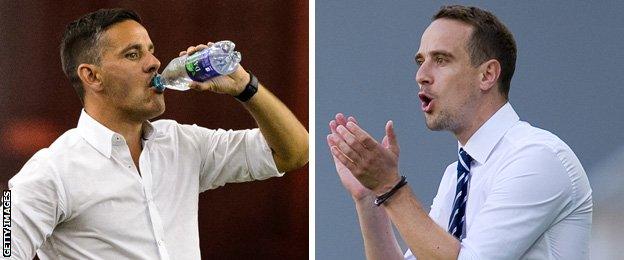
John Herdman (left) and Mark Sampson both have a fondness for crisp, white shirts
Despite seven years between them, in many ways Herdman and Sampson are cut from the same cloth, and not just in their penchant for crisp, white shirts.
Both are happy talking tactics all day long and have resounding belief in how mental resilience can prove the difference in tight games, which has been the case in the last three encounters between the two nations.
Sampson has the edge, winning both matches at the annual Cyprus Cup, including the 1-0 win in the 2015 final last March. Herdman can point to a 1-0 victory in England's final friendly before the tournament started.
Like his players, Sampson is expecting a physical game, and past experiences suggest that there won't be many goals.
"In three meetings between me and John, they have only beaten us once from a goal outside the box in a game we weren't ready for," Sampson said. "If they have sussed us out, they've hidden it so far."
The biggest difference in this tournament is that England have been able to shift gears in wins over Mexico, Colombia and Norway. The same cannot be said of Canada.
Before reaching the knockout stages with a draw against the Netherlands, Herdman showed his players how Paul Gascoigne made an impact for England at the 1990 World Cup in Italy. "My job is to fuel passion in people so they see a bigger vision of themselves," he has said.
Herdman has shown he is more than capable of delivering on that promise. Unlike the London Olympics, though, Canada will be the team with the extra burden.
- Published26 June 2015
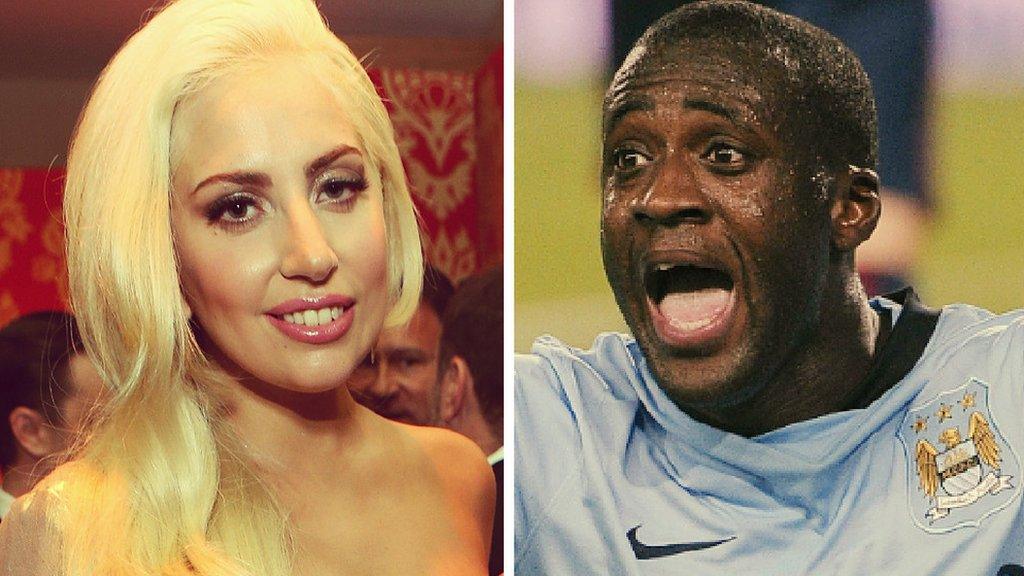
- Published25 June 2015
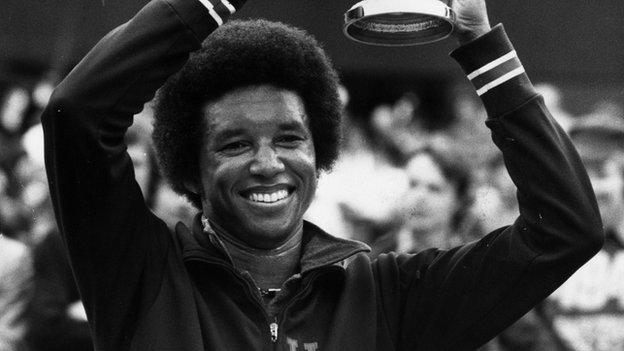
- Published26 June 2015
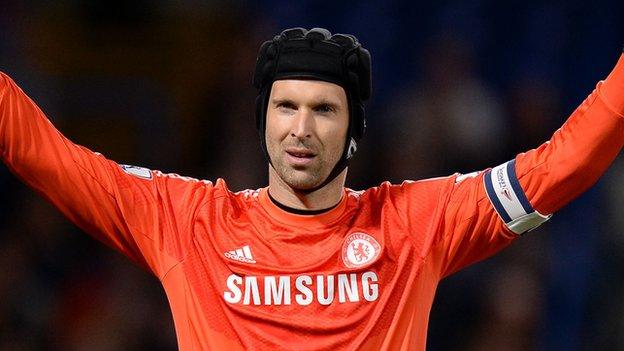
- Published20 June 2016

- Published7 June 2019
